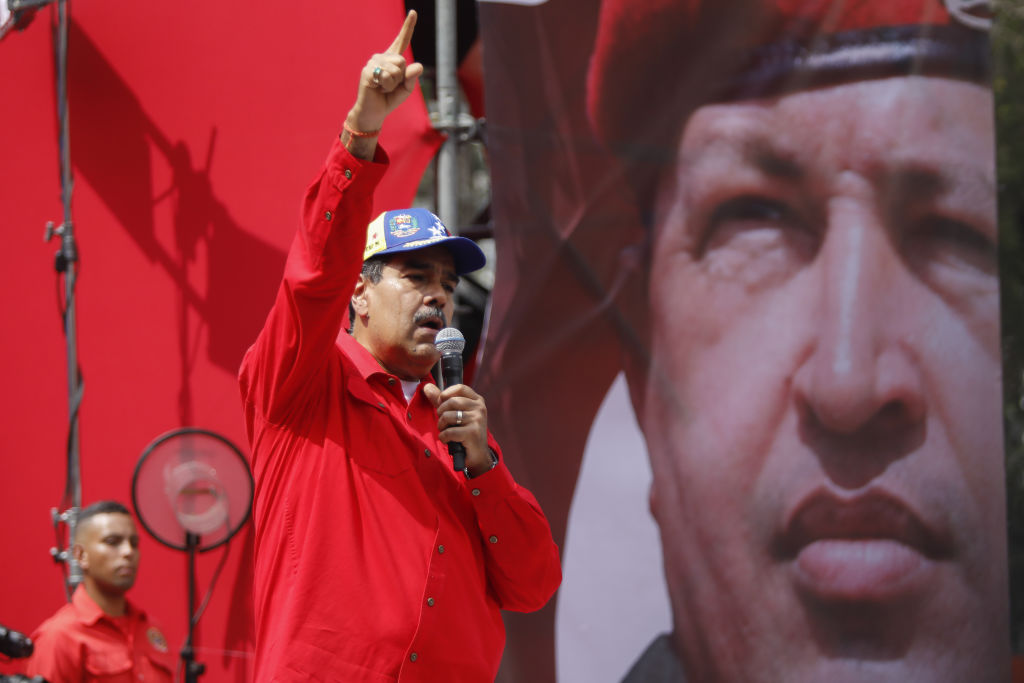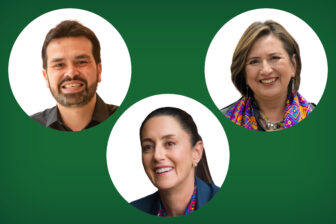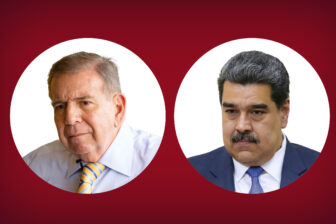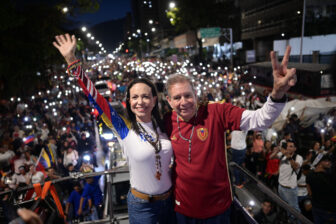The Venezuelan government’s recent decision to ratify the disqualification of the leading opposition leader from running for president in this year’s election was disappointing but hardly a surprise. President Nicolás Maduro knows he would likely lose to María Corina Machado, a longtime strident critic of the regime, and fears she would hold him and his allies accountable for corruption and human rights abuses. But there’s still a path to a credible contest, with Machado reinstated, if Maduro recognizes it is in his interest to negotiate with his hardline foe.
As authorities still need to present a credible calendar to hold an election in the second half of the year—that the democratic world hopes will be free, fair, and competitive—the U.S. is asking Colombian President Gustavo Petro to bridge the gap between the Venezuelan government and opposition to avoid acrimony and polarization that would deepen an already acute mistrust. All such moves are necessary to prevent the Barbados electoral agreement signed in October from being derailed.
The crux of the diplomatic impasse is that Maduro faces two unpalatable choices as he prepares to stand for reelection. In one scenario, he could lose and agree to leave office. Maduro faces an uphill reelection, given his low approval rating and Venezuelan voters’ anger about an economy marked for years by high unemployment, astronomical inflation, shortages of essential goods, and a breakdown in public services like electricity. Hopes for a robust economic rebound this year were diminished when the Biden administration reacted to the ban on Machado’s candidacy by threatening to reimpose sanctions on oil and gas, the heart of the country’s economy.
In another scenario, the government could engineer Maduro’s reelection by refusing to allow the registration of a legitimate opposition candidate—neither Machado nor any other figure a united opposition might rally around. That would mean renewed diplomatic isolation, the reimposition of U.S. sanctions, and a freeze of foreign investment, reversing Maduro’s principal policy achievements over the last few years.
A third theoretical scenario—Maduro winning with a plurality of the vote by dividing the opposition and discouraging his rivals’ supporters from turning up to the polls—appears unlikely for now, given the opposition’s cohesion and voters’ commitment to elections and rejection of a boycott.
People familiar with Maduro’s thinking believe that if he cannot win an election that meets minimal standards, he is willing to cede power to an opposition candidate, but not Machado. The problem with that approach is that if government and military officials seek guarantees to protect them from potential prosecution, no figure other than Machado has the standing and political space to negotiate and comply with a pact that grants concessions to the regime.
Long seen as a fringe, radical activist, Machado is today the most popular politician in the country. Former opposition stalwarts are either in exile or damaged politically. They could not sell an agreement with Maduro to an angry Venezuelan electorate or a dubious Washington. But few would question an accord negotiated by Machado, who burnished her reputation as an uncompromising critic of Maduro and his predecessor, Hugo Chávez.
Over the years, Machado promoted electoral boycotts, rejected negotiations with the regime, called for economic sanctions on the country, and advocated for international military action to remove the Maduro regime. But Machado is also intelligent and pragmatic, and her recent rhetorical moderation, calls for national unity, and commitment to elections as the means to produce change helped drive her commanding victory in the opposition primary and established her as the unquestioned leader of the opposition.
A negotiated solution
The issues that would be part of any negotiated pact between the government and the opposition would not be easily resolved. Negotiators would have to deal with legal matters like Maduro’s indictment by the U.S. Department of Justice for drug trafficking, the State Department’s offer of up to $15 million for information leading to his arrest and conviction, and the International Criminal Court’s investigation of crimes against humanity committed by the Venezuelan government and military. The parties would also need to agree on control of the judiciary, electoral council, and security forces—not to mention the competition for legislative authority between dueling National Assemblies.
All sides’ political and civil rights would have to be guaranteed as well. The ruling Socialist Party, or PSUV, includes people willing to compete and operate within a democratic framework. An electoral loss this year would not mean the end of the party but an opportunity to remake itself as a social democratic movement. The PSUV, which reached commanding levels under Chávez, remains the largest political party in the country and maintains an electoral base of some 30% despite the economic and humanitarian calamities the country has experienced during its rule in recent years. A comeback by a revamped PSUV in future elections would hardly be out of the question.
The regime and opposition may also agree on some basic economic parameters that would protect the legitimate policy interests of both sides without hamstringing the next government. The libertarian Machado and socialist Maduro could conceivably find common ground on the need to attract foreign investment, diversify the economy, and protect the most vulnerable, especially during any period of economic adjustment.
To be sure, the two sides are far from beginning to explore any of these topics. The Machado and Maduro camps have put out feelers to the other in recent months, but an actual engagement has yet to happen. The mistrust is so deep and longstanding that a third party will likely be needed to facilitate any talks. A neutral European country can play such a role. Colombia could also be equipped to be a bridge given leftist President Petro’s relationship with Maduro and the potential appointment as interim foreign minister of Luis Murillo, the skilled ambassador to the U.S.
Such a grand bargain might seem unrealistic considering the ideological chasm dividing the government and opposition, the regime’s reluctance to face genuine electoral competition, and a tight and ill-defined electoral timeline. But given the complementarity of each side’s core interests, there remains a path to salvage the election as a step toward solving the country’s multiple crises. Diplomats should seize the opportunity.
Subscribe to the Americas Quarterly Podcast on Apple, Spotify and other platforms
—
Mark Feierstein is a senior advisor at the U.S. Institute of Peace, Albright Stonebridge Group, and GBAO. He was special assistant to President Obama and senior director for Western Hemisphere Affairs on the National Security Council.








